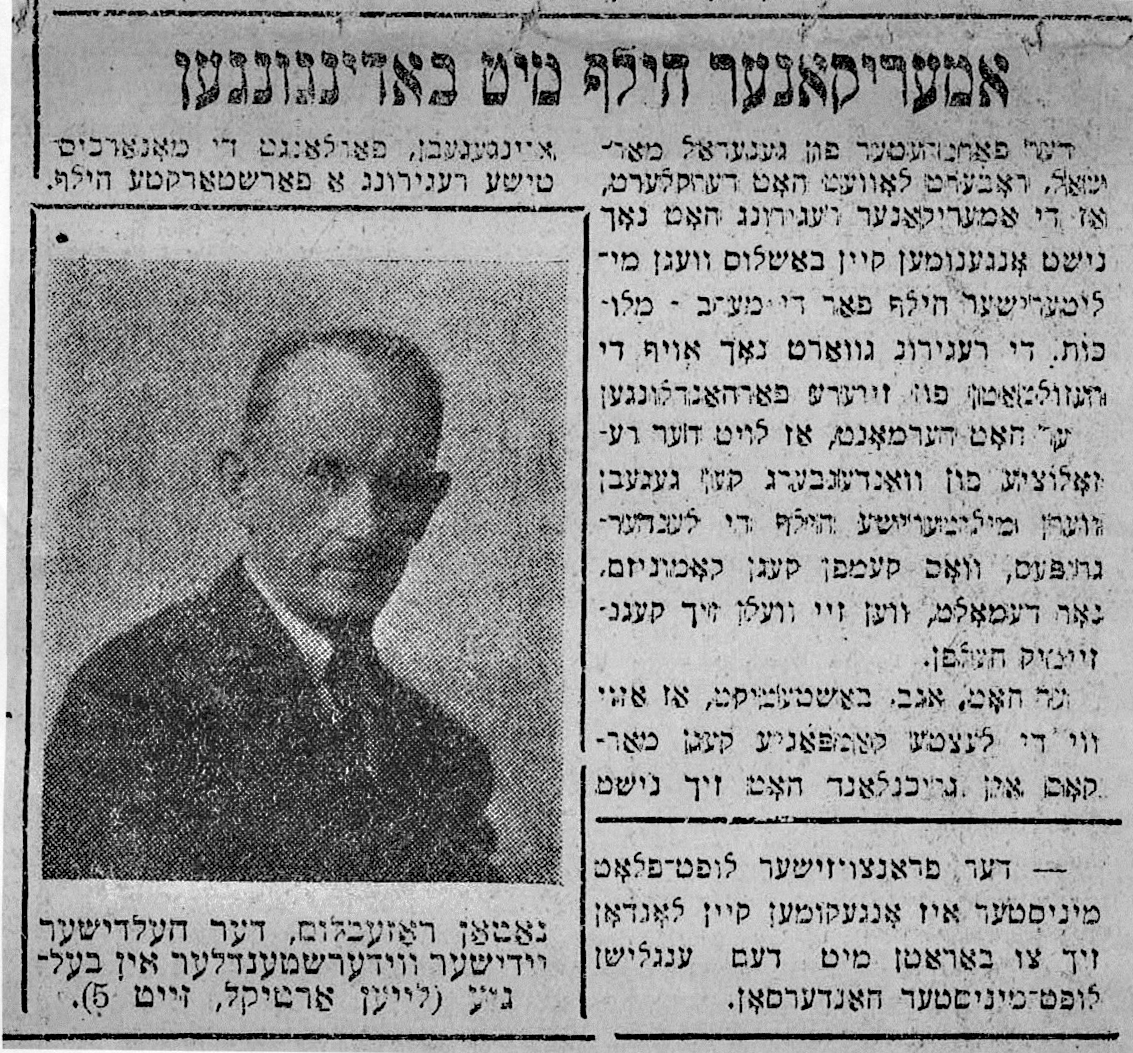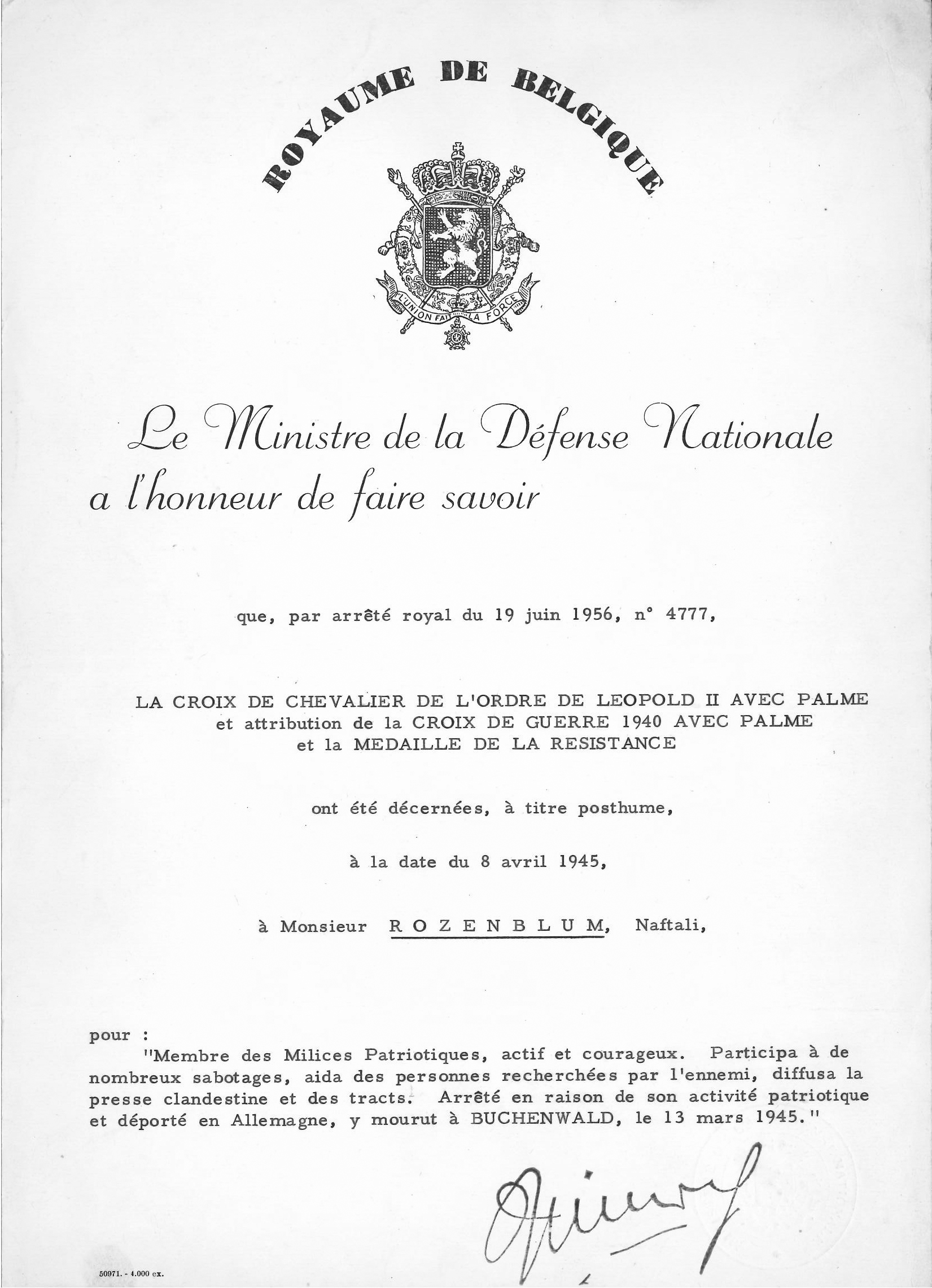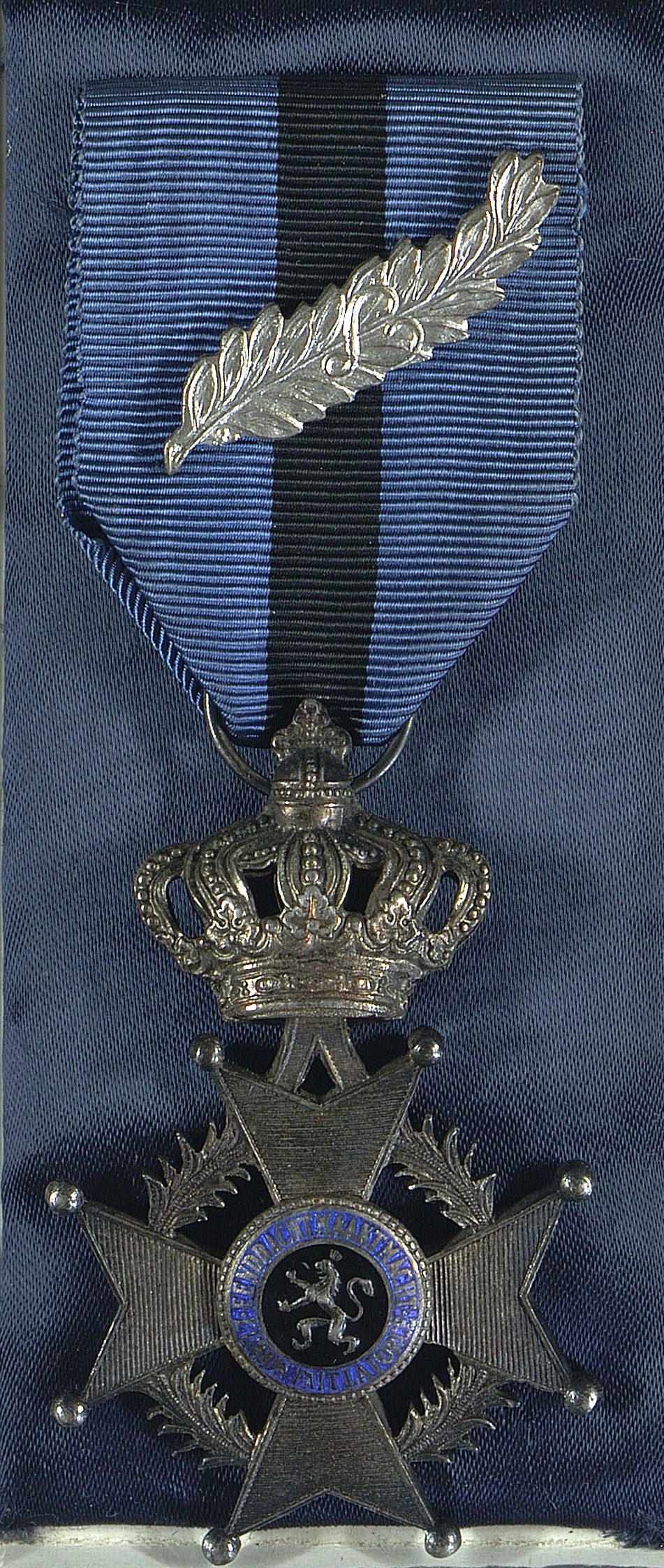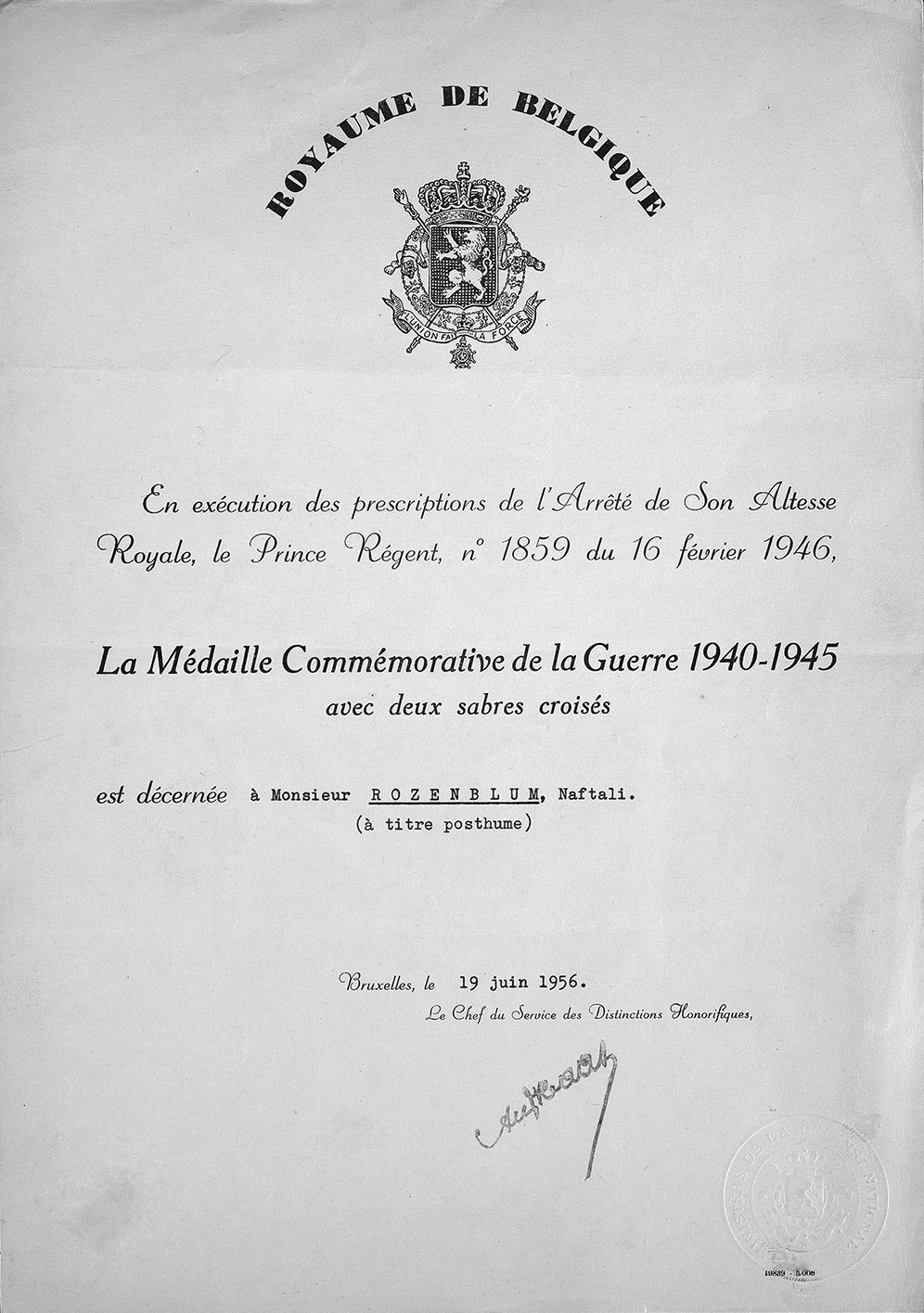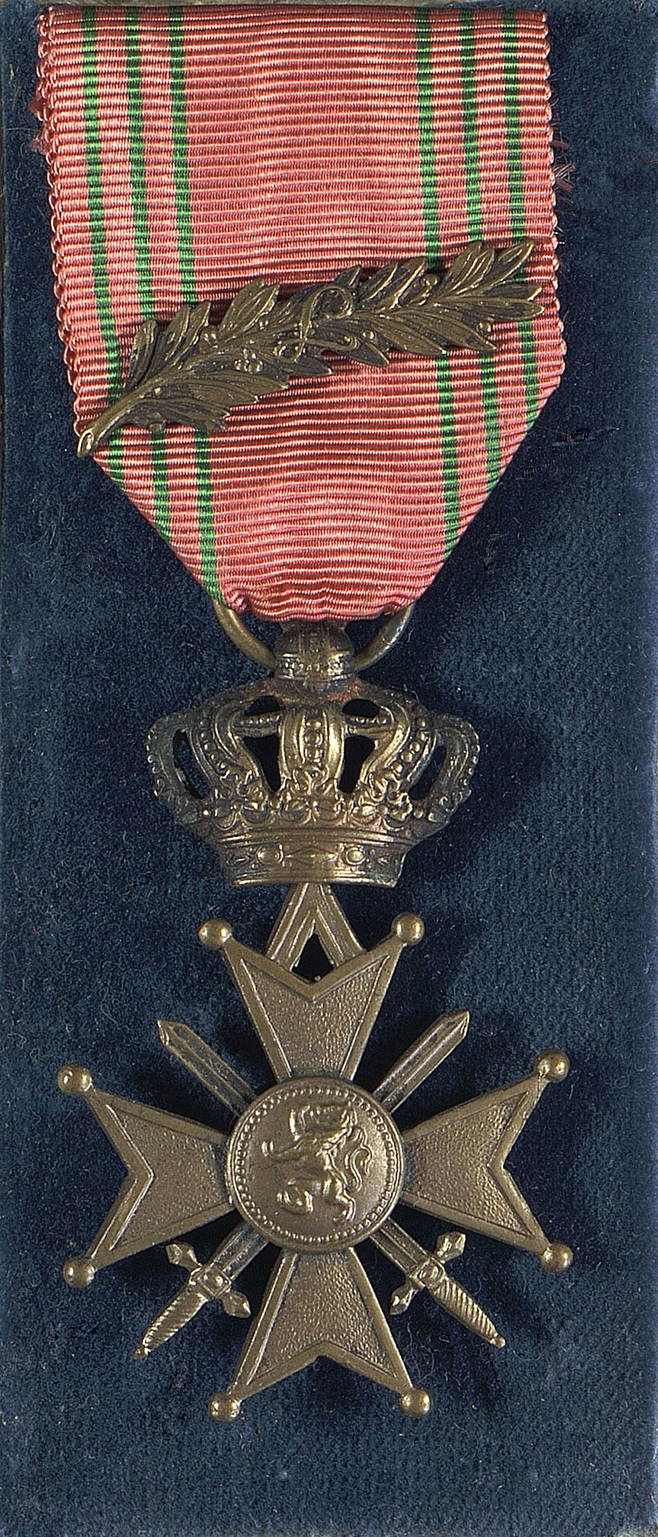Part 3: Postscript.
After the War
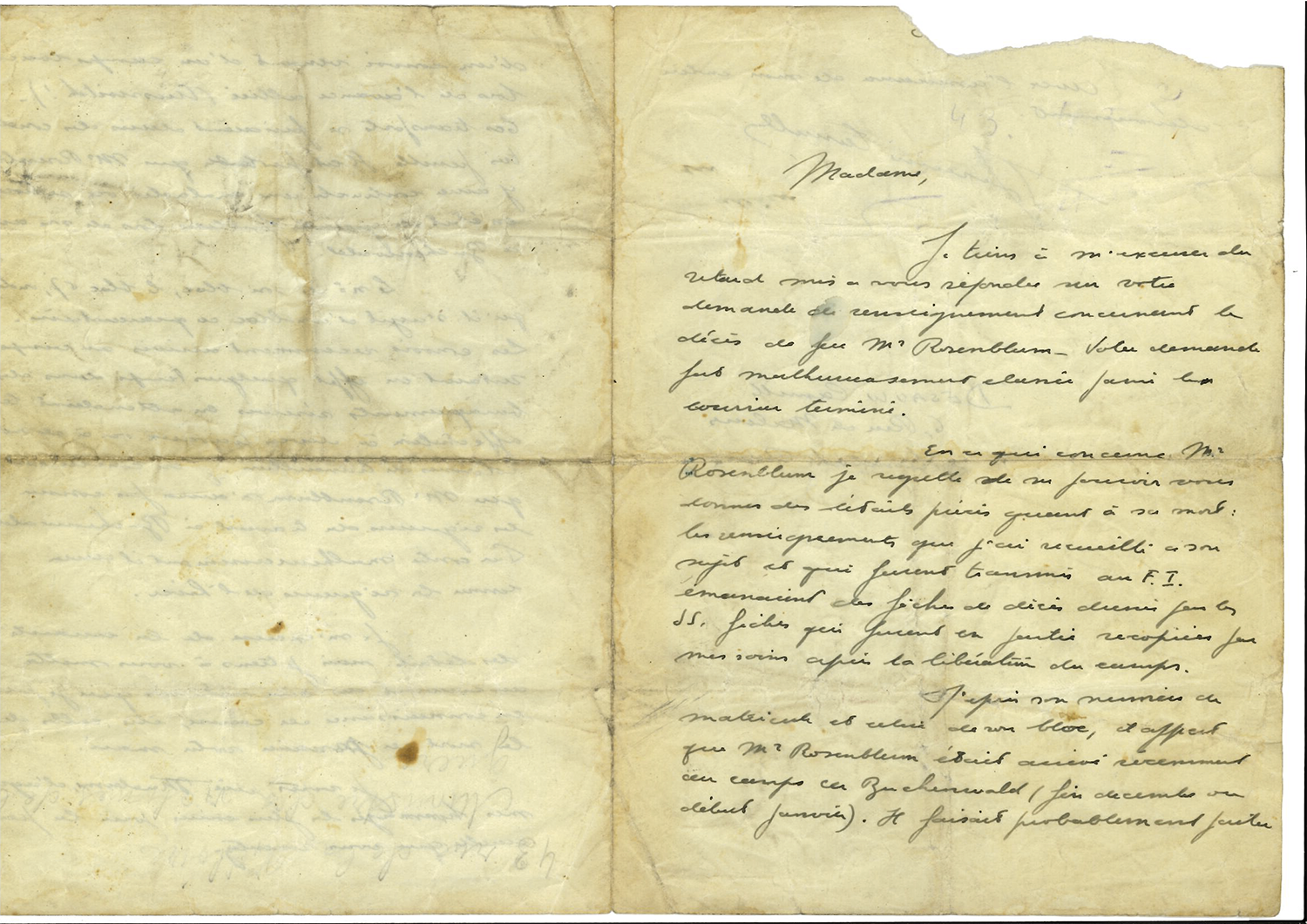 |
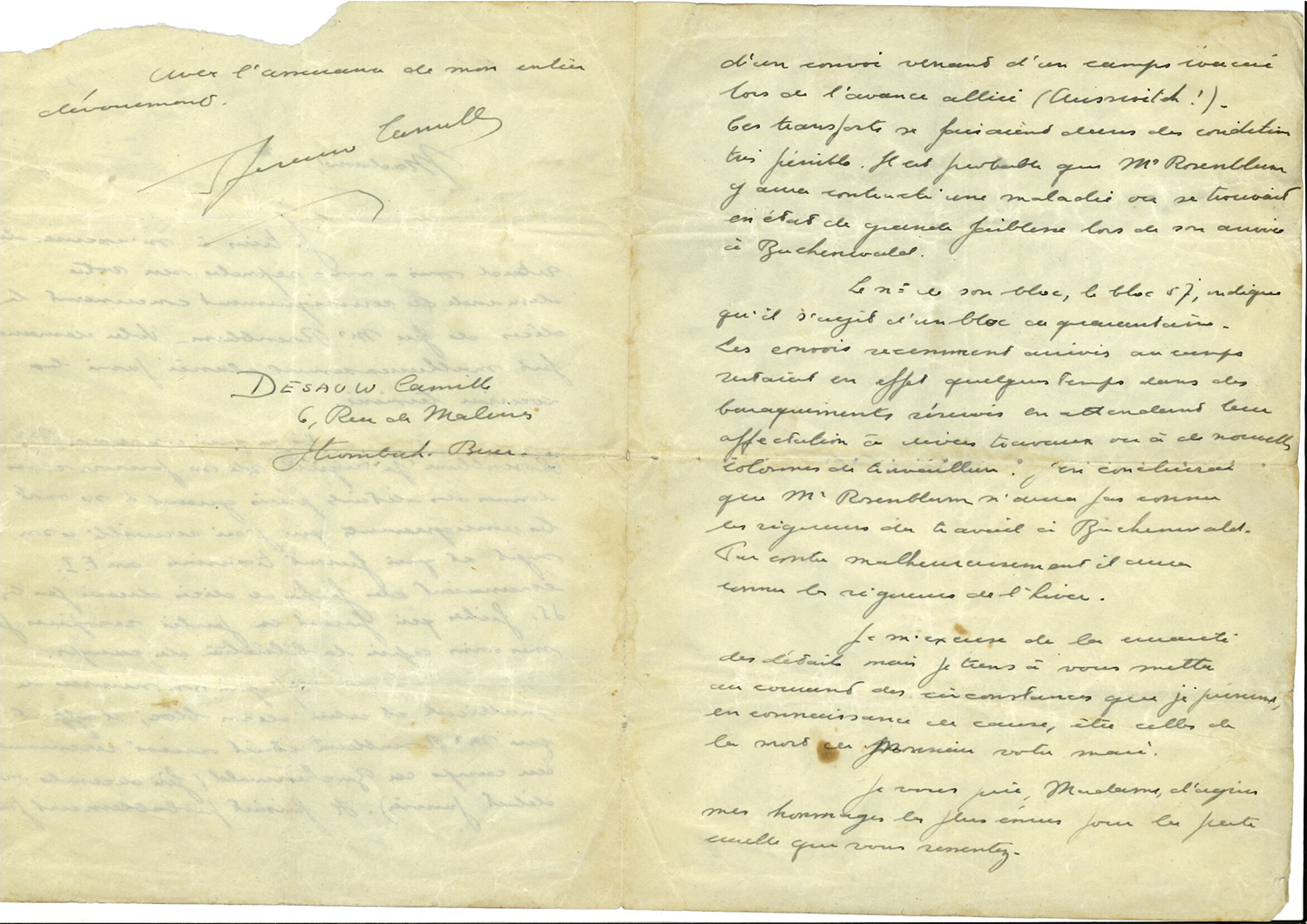 |
Madam,
I wish to apologize for the delay in answering your request for information about the death of Mr Rozenblum.Your request was unfortunately placed among the finished letters.
Regarding Mr Rozenblum, I’m sorry to be unable to give you precise details concerning his death. The information I have gathered about him and that were transmitted to the “Front de l’Indépendance” (resistance), arised from the death files made by the S.S. Those were copied by myself after the Camp’s liberation.
On the basis of his number and the one of his block, it appears he arrived recently in Buchenwald (probably by the end of December or January). He was probably evacuated to the camp because of the Allied advance (Auschwitz). Those transports were carried out in very harsh conditions. It is more likely that Mr Rozenblum contracted a disease or was in a state of weakness when he arrived in Buchenwald.
The number of the block, number 57, indicates it was a quarantine block. The newly arrived convoys in the camp had to remain in those ‘dedicated’ barracks, while waiting for their assignment to various work or to new columns of workers *. I would conclude that Mr Rozenblum didn’t experience the rigours of working in Buchenwald. Unfortunately, he knew the rigour of the winter.
I wish to apologize about the hardness of those details but I wish to inform you about (what I guess) being the circumstances of the death … (unreadable) your husband.
I address you my deepest respects for the cruel loss you must feel.
With my full commitment.
Camille Desauw
Rue de Malines, 6
Strombeek-Bever”
* Note: this refers to the teams (commandos) of workers who were gathered (in columns) in the camps to be daily assigned to this or that task, to this or that barrack in the camp (Kanada, etc.) or even to the workshops of a factory in the industrial zone near the camp)
1947
August
Following his patriotic activity in our armed groups, he was arrested by the Gestapo, deported to the Nazi prisons and he died in Buchenwald on the 13th March 1945
This certificate is given to its forward-right MMe Suknik, Curtha, Guide Gezelle 68 Schaerbeek so that she can assert the possible rights provided for in the Status of P.P.
Milices Patriotiques (Communist Belgian Resistance)
Signed:
S. Lahaye
A. Malfaire
A. Coenen
R. Dumont
G. Dewamme
1947
September
 |
I, the undersigned JOCHIMEK living at St-Gilles, rue de Portugal, no. 1
Duly authorized as recruiting agent to proceed with the recruitment and enrollment in the M.P. groups of the F.I.
certifies on honor to have joined forces in November 1940 with
Mr. Naftali Rozenblum, born in Warsaw (Poland) 15th October 1900
Living in Schaerbeek, rue Gaucheret no. 78
A. Jochimek
=================
Certificate of clandestine activity in the ranks of M.P.
I, the undersigned JOCHIMEK living at St-Gilles, rue de Portugal, no. 1
Responsible while in underground in the aforementioned groups
certifies on honor that Mr. Naftali Rozenblum
Born in Warsaw (Poland) 15th October 1900
Living in Schaerbeek, rue Gaucheret no. 78
was indeed under my orders during the underground work that he fulfilled punctually and completely the functions with which he was invested and the missions entrusted to him.
A. Jochimek
M.P. = Milices Patriotiques
F.I. = Front Patriotique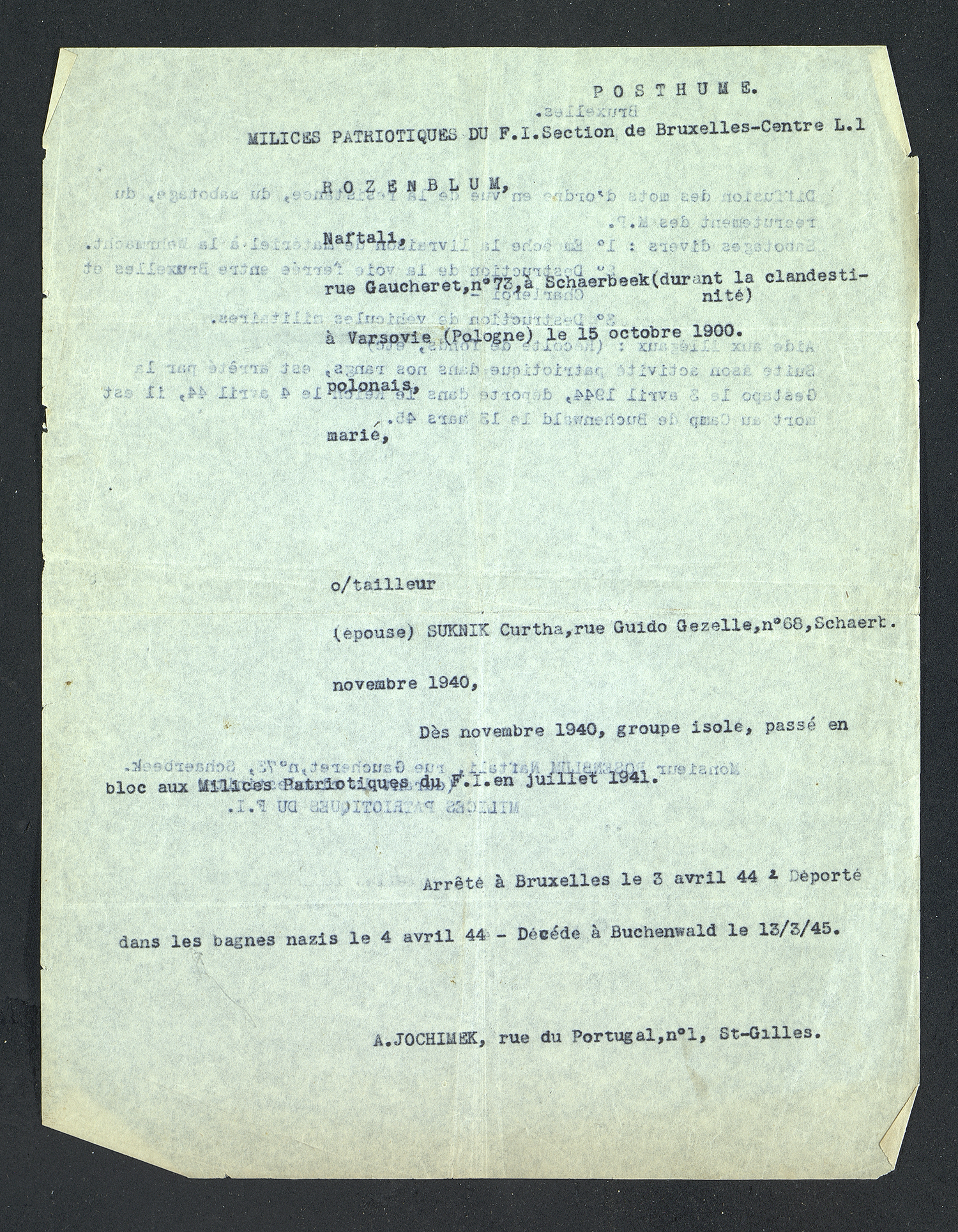 |
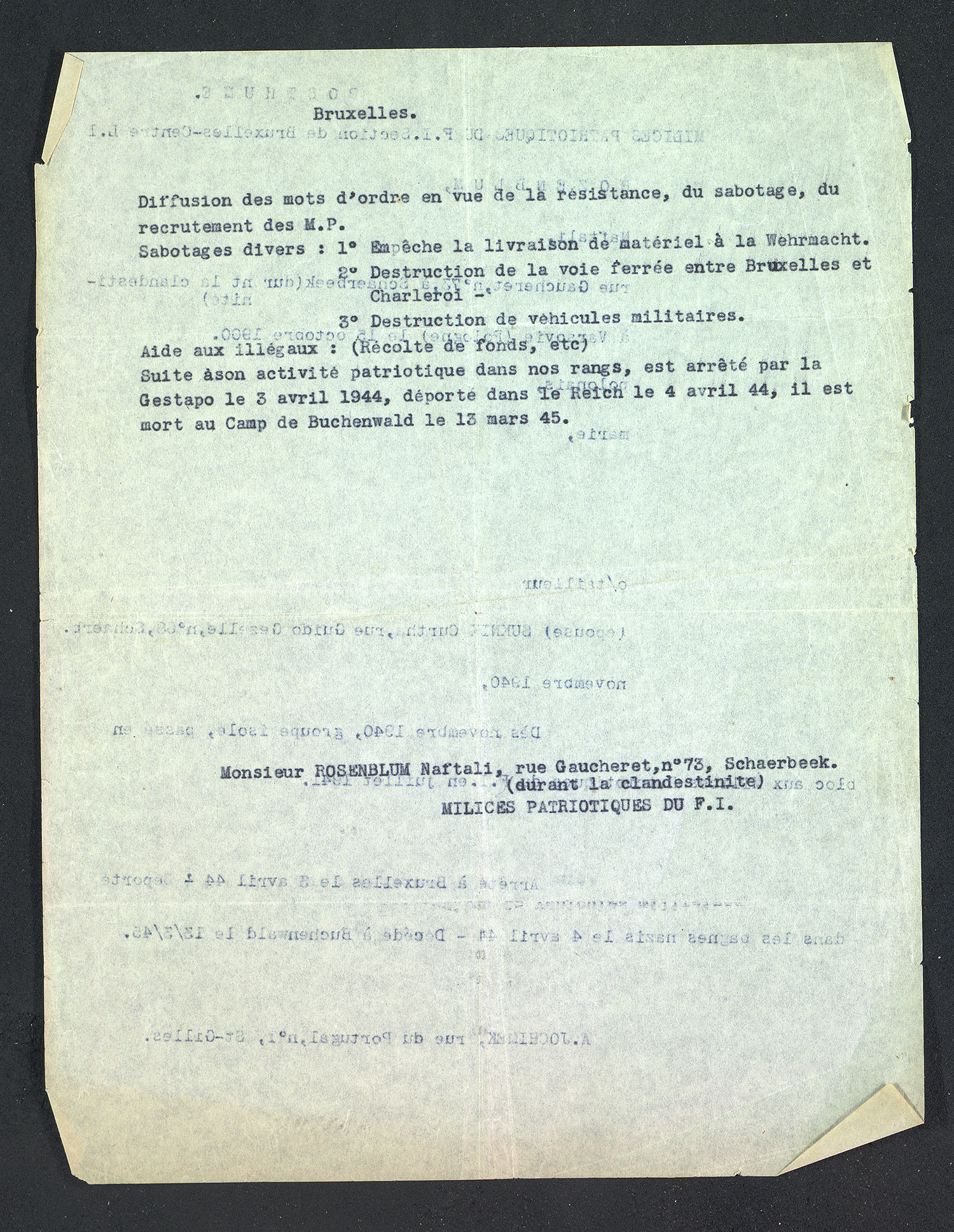 |
(Activities)
Dissemination of slogans for resistance, sabotage, recruitment of M.P.
Various sabotages:
1. Prevents delivery of material to the Wehrmacht.
2. Destruction of the railway line between Brussels and Charleroi.
3. Destruction of military vehicles. Aid to illegals: (fundraising etc).
Following his patriotic activity in our ranks, was arrested by the Gestapo on April 3, 1944, deported to the Reich April 44, he died at Buchenwald Camp on March 13, 1945.
Naye Prese Article published Friday 8th october 1948
December 12
Belgique Brevet la croix du prisonnier politique 1940 - 45
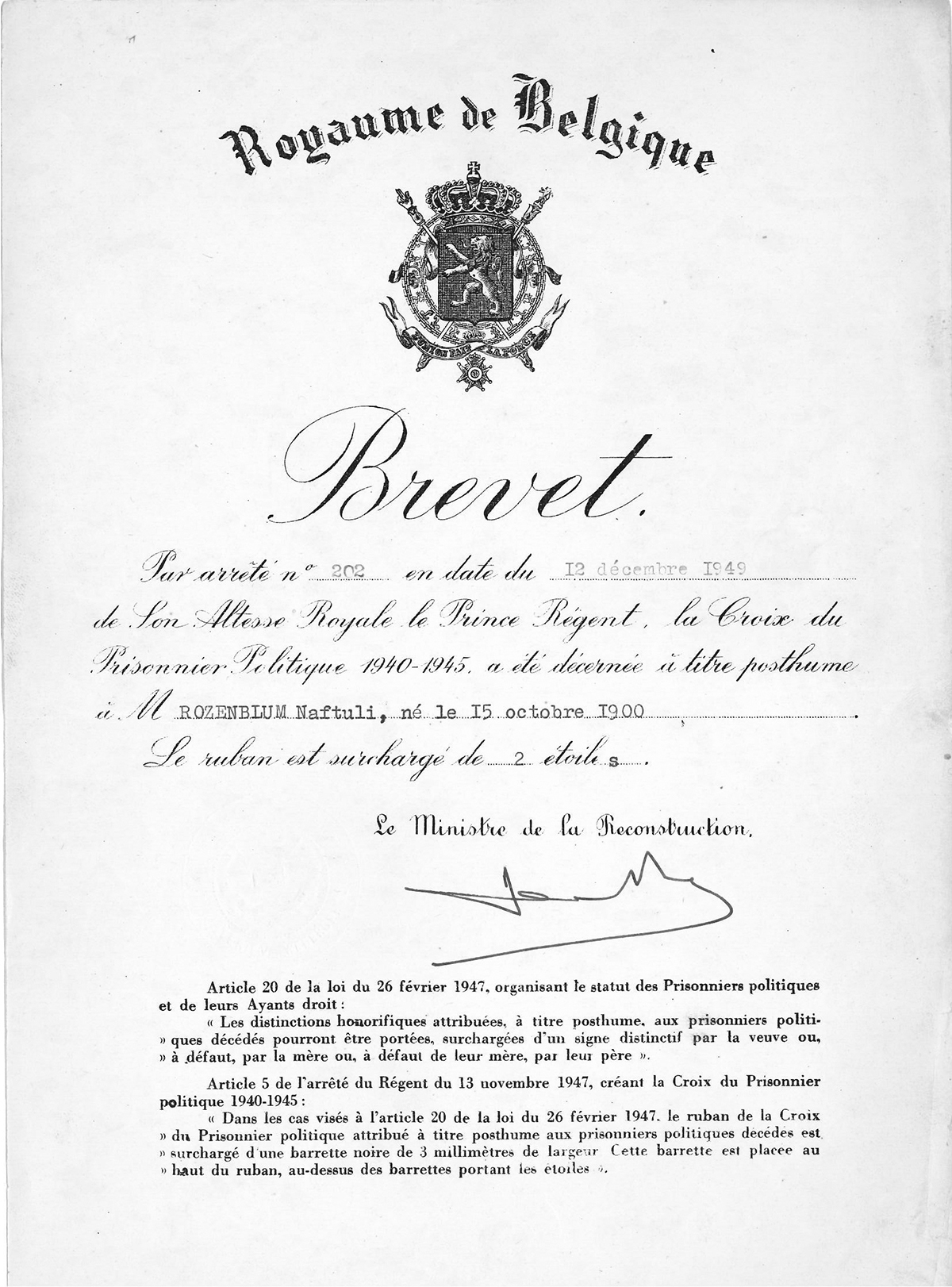 |
June 19
La Croix de Chevalier de l'Ordre de Leopold II
I was confronted with the death of my father in 1981 and that of my paternal grandmother in 1982. I was therefore never able to hear from them directly about their life before and during the Shoah.
Fortunately, my grandmother left a detailed written account of her own life and of my grandfather's particular itinerary.
My grandfather was a Polish Jew, born at the beginning of the 20th century, convinced that political engagement and (later) resistance was the only possible way.
He was an early communist and trade union activist, spent several years in prison in Poland and came to Belgium at the end of the 1920s where he continued his activities. He entered the armed resistance (Milices Patrotiques) from the first hours of the German occupation. As a member of the Resistance and being Jewish, he paid with his life for his commitment and fight against barbarism.
He will be missed by his family, but we can all be proud of the exemplary nature of his behavior.
The laying of this paving stone will be followed at some point in the future by an official inauguration, the exact date of which will depend on the steps taken by the Association for the Memory of the Shoah with the Municipal Authorities.
The paving stone is laid in front of number 68 rue Guido Gezelle, Schaerbeek, the place where my grandparents lived clandestinely during part of the war.
David Rozenblum, grandson of Naftali, October 11, 2019
